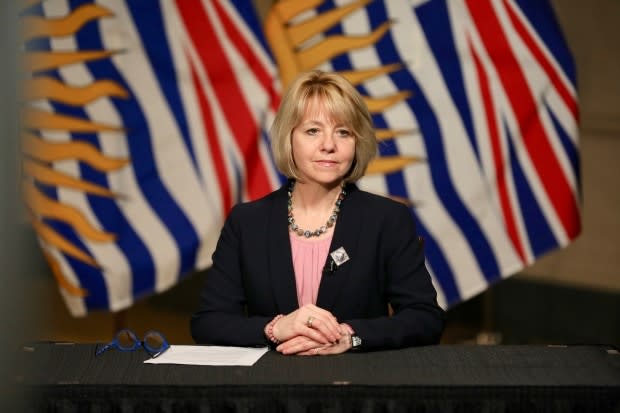How safe is flying during the pandemic?
Passengers travelling through Vancouver international Airport (YVR) were alerted to six possible exposures aboard airplanes in June while Canadian airlines have now dropped in-flight physical distancing measures.
So how concerned should people be about flying?
Dr. Srinivas Murthy is an infection disease expert and associate professor at the University of British Columbia. He said he would weigh the risks and benefits of taking a flight before he set out.
"The thing we know about how the virus is transmitted is that in enclosed spaces, without ventilation, with many individuals indoors seems to be a high-risk zone for transmission," said Murthy.
'In theory it's a reasonably high risk area'
"Whether that translates to airplanes, it's difficult to say," he said. "We haven't seen a lot of airplane-based transmission — that's mostly because the airlines haven't flown as much with as many people — but in theory it's a reasonably high-risk area to be in."

Earlier this week, B.C. Health Minister Adrian Dix called on his federal counterparts and the airlines to reveal the evidence that it was safe to drop physical distancing on flights.
On Thursday he seemed to soften his tone, but still stressed that of the various measures that can be taken to prevent the spread of the virus, physical distancing is at the top of the hierarchy.
"Physical distancing is something we preach here every day. Physical distancing saves lives and it's important wherever you are," Dix told reporters.
He said without that distance, people need to have discipline about wearing masks, washing hands and avoiding touching surfaces and faces.
'You cannot travel if you are sick'
Dr. Bonnie Henry, provincial health officer, highlighted the need to keep sick people off planes — a responsibility shared by passengers and airlines, she said.
"You should not, you cannot travel if you are sick or if you've been in contact with people who have COVID-19," said Henry.
She also said that it's still a challenge for health officials to efficiently and effectively get in touch with everyone who was on flights when a COVID-19 case has surfaced.
'Airlines are being treated differently'
On Friday, Don Davies, member of parliament for Vancouver-Kingsway and NDP health critic, called on Transport Canada to immediately impose physical distancing requirements on all passenger aircraft in Canada.
"One must question why airlines are being treated differently than every other business and industry in Canada," said Davies, accusing the federal government of putting commercial interests above the health and safety of travellers.
"We must not jeopardize the progress that Canadians have worked so hard to make in their fight against COVID-19 by allowing these airlines to fly into known hotspots like California, Nevada and Florida without any physical distancing requirements," he said.

On Thursday the B.C. Centre for Disease Control warned passengers on four flights that arrived at YVR in June they had potentially been exposed to COVID-19 — in addition to two other flights departing from the airport that month (one bound for Edmonton, another for Calgary).
The agency asked people aboard the affected flights to self-isolate and monitor for COVID-19 symptoms for 14 days.
In the case of two of the flights, 14 days had already passed. For two others, the intended self-isolation period has nearly elapsed.
The BCCDC did not answer a question from CBC News on Thursday asking why the warning came long after the potential contact, saying only that people can find out about possible exposure on flights and other public places on the agency's website.
Both WestJet and Air Canada defend the safety measures they're taking to prevent the spread of the coronavirus.
"We are left to use a combination of approaches to mitigate risk as far as practical," said a statement sent by Air Canada.
Both airlines highlighted their use of HEPA, or high-efficiency particulate air, filters, with WestJet claiming they remove "99.999 per cent of all airborne particles," and Air Canada claiming they ensure complete changes of air every two to three minutes.
They have both been doing aircraft interior disinfecting between flights, with WestJet describing "fogging using a hydrogen peroxide-based solution."
WestJet also highlighted mandatory pre-boarding temperature checks.
"It is noteworthy there have been no reports of outbreak clusters onboard individual flights during the COVID pandemic," said the Air Canada statement.
Do you have more to add to this story? Email rafferty.baker@cbc.ca
Follow Rafferty Baker on Twitter: @raffertybaker


